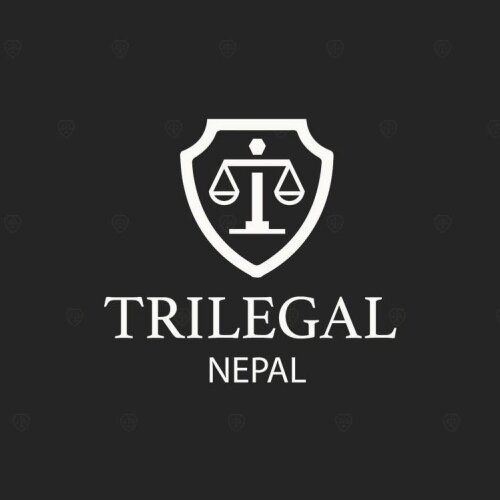Best Labor Law Lawyers in Nepal
Share your needs with us, get contacted by law firms.
Free. Takes 2 min.
Or refine your search by selecting a city:
List of the best lawyers in Nepal
About Labor Law in Nepal
Labor Law in Nepal is designed to regulate both the rights and obligations of workers and employers, ensuring a fair and safe working environment. The legal framework comprises various laws, including the Labor Act, 2017, which replaced the previous Labor Act of 1992. These laws aim to provide equitable opportunities, protect workers' rights, and promote harmonious industrial relations. Key areas covered include employment contracts, wages, working hours, occupational health and safety, and dispute resolution mechanisms.
Why You May Need a Lawyer
There are several situations where individuals or organizations may require legal assistance related to Labor Law in Nepal:
- Disputes over wrongful termination or unfair dismissal claims.
- Non-compliance with employment contracts, including unpaid wages or benefits.
- Issues regarding workplace discrimination or harassment.
- Changes in employment terms without consent or due process.
- Matters concerning occupational health and safety violations.
- Representing employee unions or employer organizations in negotiations or disputes.
- Dealing with immigration-related employment issues for foreign workers.
Local Laws Overview
Nepal's Labor Laws comprise several key aspects that are crucial for both employees and employers to understand:
- Employment Contracts: Must be in written form, specifying employment terms, job descriptions, and conditions.
- Minimum Wage: The government sets minimum wage rates, which are periodically reviewed and adjusted.
- Working Hours: Standard work hours are 8 hours a day and 48 hours a week, with provisions for overtime pay.
- Leave Policies: The law includes provisions for annual leave, sick leave, maternity and paternity leave.
- Occupational Health and Safety: Employers must ensure a safe working environment and comply with safety standards.
- Social Security: Employers must contribute to social security funds for medical care, unemployment, and pensions.
- Dispute Resolution: Establishes mechanisms for negotiation, mediation, and arbitration in resolving labor disputes.
Frequently Asked Questions
What is the minimum wage in Nepal?
The minimum wage in Nepal is determined by the government and is subject to periodic changes. It is crucial to keep updated with the latest announcements from the Ministry of Labor, Employment and Social Security.
How is overtime calculated?
Overtime is typically paid at one and a half times the regular hourly wage for work exceeding 8 hours a day or 48 hours a week.
What rights do workers have during maternity leave?
Women are entitled to 98 days of maternity leave, with full pay for 60 days. Additional unpaid leave may be arranged with the employer.
Can wages be deducted without consent?
No, deductions from wages require the employee's consent or must be stipulated by law, such as tax or social security contributions.
What should be included in an employment contract?
An employment contract should detail job roles, working hours, remuneration, leave entitlements, and termination conditions.
What are the procedures for handling workplace harassment complaints?
Employers must have a policy and a designated committee to investigate and handle harassment complaints. The findings must be addressed promptly.
How can discrimination at work be addressed?
Victims of workplace discrimination can file complaints with the employer or seek redress through labor courts or the Department of Labor.
What is the process for dispute resolution under Nepali Labor Law?
Disputes are initially addressed through conciliation, followed by mediation or arbitration if necessary, as outlined in the Labor Act.
How are workplace accidents managed under the law?
Employers must report accidents, investigate causes, and ensure compensation and medical treatment for affected workers in compliance with the law.
What protections exist for union activities?
Employees have the right to form and join trade unions, engage in collective bargaining, and organize strikes, subject to legal procedures.
Additional Resources
There are several resources and organizations where individuals can seek further assistance on Labor Law in Nepal:
- Ministry of Labor, Employment and Social Security: Offers detailed guidelines and updates on Labor Law.
- Department of Labor: Handles enforcement and compliance issues regarding labor standards and practices.
- Trade Unions: Provide support and representation for worker rights and industrial disputes.
- Nepal Bar Association: Can help locate qualified labor law attorneys.
Next Steps
If you require legal assistance involving Labor Law in Nepal, consider the following steps:
- Identify the specific nature of your legal issue, such as contract disputes or workplace harassment.
- Gather relevant documents and evidence that support your case.
- Consult with a lawyer specializing in labor law to understand your rights and options.
- Consider reaching out to labor organizations or trade unions for additional support and advice.
- If necessary, file a complaint with the Department of Labor or seek mediation to resolve disputes.
Lawzana helps you find the best lawyers and law firms in Nepal through a curated and pre-screened list of qualified legal professionals. Our platform offers rankings and detailed profiles of attorneys and law firms, allowing you to compare based on practice areas, including Labor Law, experience, and client feedback.
Each profile includes a description of the firm's areas of practice, client reviews, team members and partners, year of establishment, spoken languages, office locations, contact information, social media presence, and any published articles or resources. Most firms on our platform speak English and are experienced in both local and international legal matters.
Get a quote from top-rated law firms in Nepal — quickly, securely, and without unnecessary hassle.
Disclaimer:
The information provided on this page is for general informational purposes only and does not constitute legal advice. While we strive to ensure the accuracy and relevance of the content, legal information may change over time, and interpretations of the law can vary. You should always consult with a qualified legal professional for advice specific to your situation.
We disclaim all liability for actions taken or not taken based on the content of this page. If you believe any information is incorrect or outdated, please contact us, and we will review and update it where appropriate.
Browse labor law law firms by city in Nepal
Refine your search by selecting a city.

















